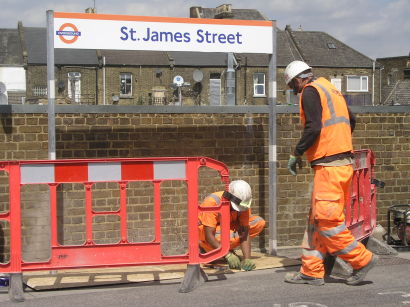THE transport secretary Chris Grayling has opened the doors to private railway investors in a bid to reduce pressure on the Treasury.
The Department for Transport said: “Proposed schemes would need to make commercial sense, build on the government’s significant investment in rail infrastructure and have the needs of passengers at their heart.”
The new policy has been welcomed by the railway and engineering industries, but transport campaigners are warning that its benefits need to be felt nationwide and not just in south east England.
In a parallel development, the DfT is tightening its grip on how rail projects are funded and managed, saying it has ‘set out a new process for ensuring that taxpayer-funded rail projects are planned and scrutinised more effectively in the future. As part of the new Rail network enhancements pipeline, new rail schemes will be decided on in a staged – develop, design, deliver – approach to allow for greater assessment of feasibility and value for money.”
East West Rail is already known to be a candidate for a degree of private funding, and a separate company is being set up this spring to complete the route between Oxford, Aylesbury and Bedford, and later on to Cambridge, while other major schemes attracting headlines include better rail connections for London Heathrow Airport.
Links between the airport and London are already set to be boosted as phases of the Elizabeth Line are opened this year and next, so now attention has been turning to improving access from the west and south.
A private company called Heathrow Southern Railway has estimated the capital cost of a line from the south to be between £1.3 billion and £1.6 billion. The proposed route would run from the station under Terminal 5 – where two spare platforms are available – to make a connection with the Windsor-Staines Line via a short spur. The main route would continue underground along the M25 corridor as far as a second junction with the existing railway near Chertsey.
The DfT said the Heathrow scheme was ‘just one example of ambitious proposals that would generate significant improvements for passengers”.
Transport secretary Chris Grayling explained; “We are investing in the most significant modernisation of the UK rail network since Victorian times, and I want the knowledge and expertise of investors and local partners to contribute to delivering new connections, more services and better journeys for passengers.
“This has already proved effective on a number of roads schemes in the UK. By encouraging innovative ideas and new investment on our railways, we can relieve the burden on taxpayers and fare payers with projects that match our transport needs. This can also support our economic and housing aspirations to ensure everyone benefits from an enhanced rail network.
“Heathrow is a perfect example of where this can make a real difference. Such schemes will help ensure the benefits of our major international hub are even more accessible to those across the west and south of the UK, providing vital links for travellers and exporters and attracting inward investment.”
Rail Delivery Group chief executive Paul Plummer said: “Better rail connections are crucial for generating prosperity in communities across the country. This is why train operators, infrastructure managers and suppliers are ready to work with government and other funders to support value for money projects, whether they are publicly funded or otherwise. It is only by working together in this way that we will deliver the changing and improving railway that the economy, communities, customers and our people need, now and for the long-term.”
Potential partners and investors have also welcomed the new policy.
The Association for Consultancy and Engineering’s chief executive Nelson Ogunshakin said: “This is great news for our railways and we’re delighted that our calls for increased investment through complementary private funding have been heard. There is a huge opportunity for market-led proposals to unlock rail projects.”
However, Andrew Allen from the Campaign for Better Transport warned: “In recent years, rail projects have been very difficult to deliver. Hundreds of communities have been crying out for a bigger, better railway but high costs and convoluted processes have meant slow progress in getting anything built. We hope the new pipeline approach signals real funding and a long-term commitment to delivering new tracks and stations across the country – not just privately-funded schemes in the south east.”


